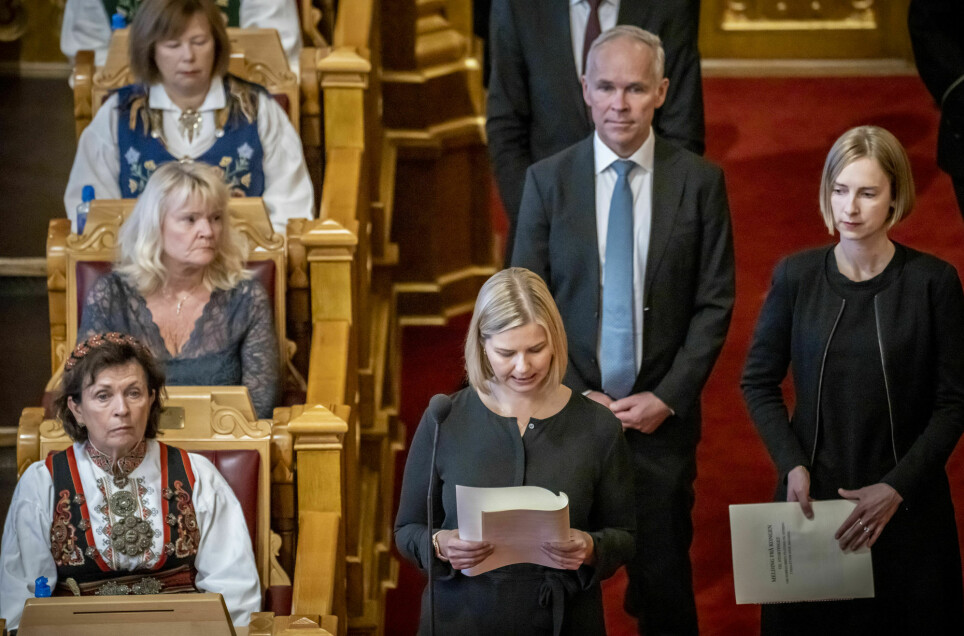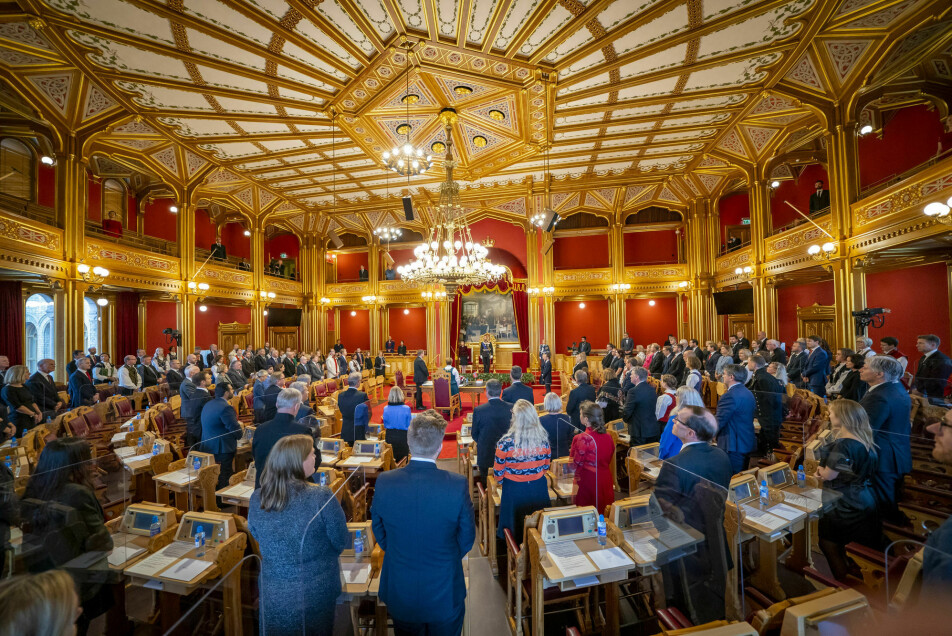
Researchers have figured out what it takes to be among the political elite in Norway
Almost all of the politicians in Norway’s Parliament, the Storting, are career politicians. Norwegians should be happy about that, researchers say.
“A large majority of all Norwegian national politicians have a background as municipal politicians, county politicians and mayors,” Jon H. Fiva, a professor of economics at the Norwegian Business School (BI), told sciencenorway.no.
He and two colleagues have found that more than 80 per cent of those who have been elected to a seat in the Storting have been on a municipal council.
Roughly 40 per cent have been elected to a county council, and just over 20 per cent have been mayors or county mayors.
In other words, if you want to make a career as a national politician in Norway, you pretty much have to start from the bottom ranks in a party and work your way up.
Celebrities don’t get top rankings from the parties
Norway is not a country where celebrities from reality series, sports, cultural life, or the media become national politicians.
“The front door to Norwegian municipal politics is quite open. But it’s the best candidates from here who rise to the top,” Fiva says. “This means Norway has good people who govern.”
No chance for Donald Trump in Norway
Thanks to the current electoral system, where the political parties get to decide who will serve nationally, the parties are quite disciplined when it comes who will to be elected to the Storting.
This means that Norway doesn’t get candidates who might make Norwegian politics more entertaining, but at the same time, the process protects the country from populism, the researchers say.
“In countries where the people and not the parties decide who is elected to the National Assembly, there can be a lot more populism in politics. That makes it much easier for politicians like Donald Trump to get elected,” Fiva said.
Well over 80 percent are career politicians
Fiva and his colleagues Alexandra Cirone (Cornell University) and Gary W. Cox (Stanford University) have now investigated who has become a politician in Norway.
They have gone a hundred years back in time, and say they are struck by the stability in the proportion of career politicians.
“Since World War II, this proportion has been very stable at over 80 per cent. So this is certainly not a new development,” says Fiva.
One hundred years ago, Norway went from having an electoral system in which each constituency voted for a single person, as is the case in the United States, to a system in which voters vote for a party and the party's list of candidates.
“That's how the parties have become super important,” Fiva says. “People play less of a role.”

70 per cent run for re-election
The media occasionally reports on the high turnover in politicians at the national level.
But when Fiva and his colleagues took a closer look at this, they were struck by how stable the cast of characters involved in Norwegian politics actually is:
“Around 70 per cent of politicians run for re-election every time. This figure has also been almost remarkably stable for many years,” Fiva said.
In the 2021 parliamentary elections that have just concluded, 114 of the 169 elected representatives were running for re-election. This corresponds to 67.5 per cent.
“I think many will think that this is a reasonable replacement rate among politicians,” Fiva said.
Good politicians in Norway
While Fiva believes that Norway’s political parties are good at advancing the best candidates as politicians, his measuring stick is something that some people would certainly question.
He looks at the politicians’ income before they entered politics.
“There are many ways to measure a politician’s quality. But a widely used goal internationally is to look at their value in the labour market, meaning their income before they entered politics,” he said.
“If we use this assessment for Norwegian politicians, we see that they were on average valued higher in the labour market than the people they represent. It suggests that Norway has positive recruitment to the national political scene,” Fiva said.
Translated by Nancy Bazilchuk
Read the Norwegian version of this article on forskning.no
Source:
Alexandra Cirone, Gary W. Cox and John H. Fiva: "Seniority-Based Nominations and Political Careers", Cambridge University Press, September 2020. Summary































